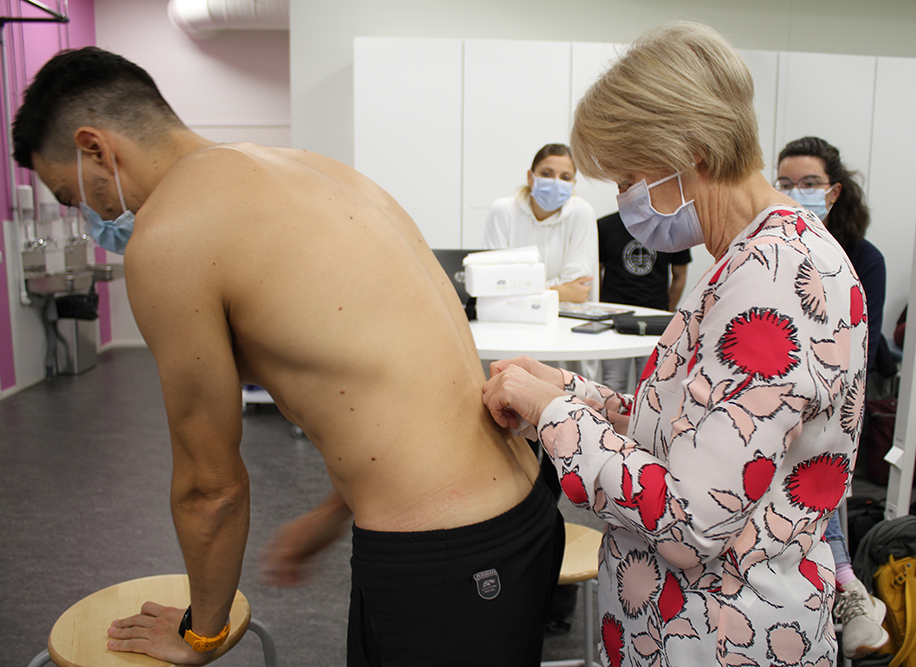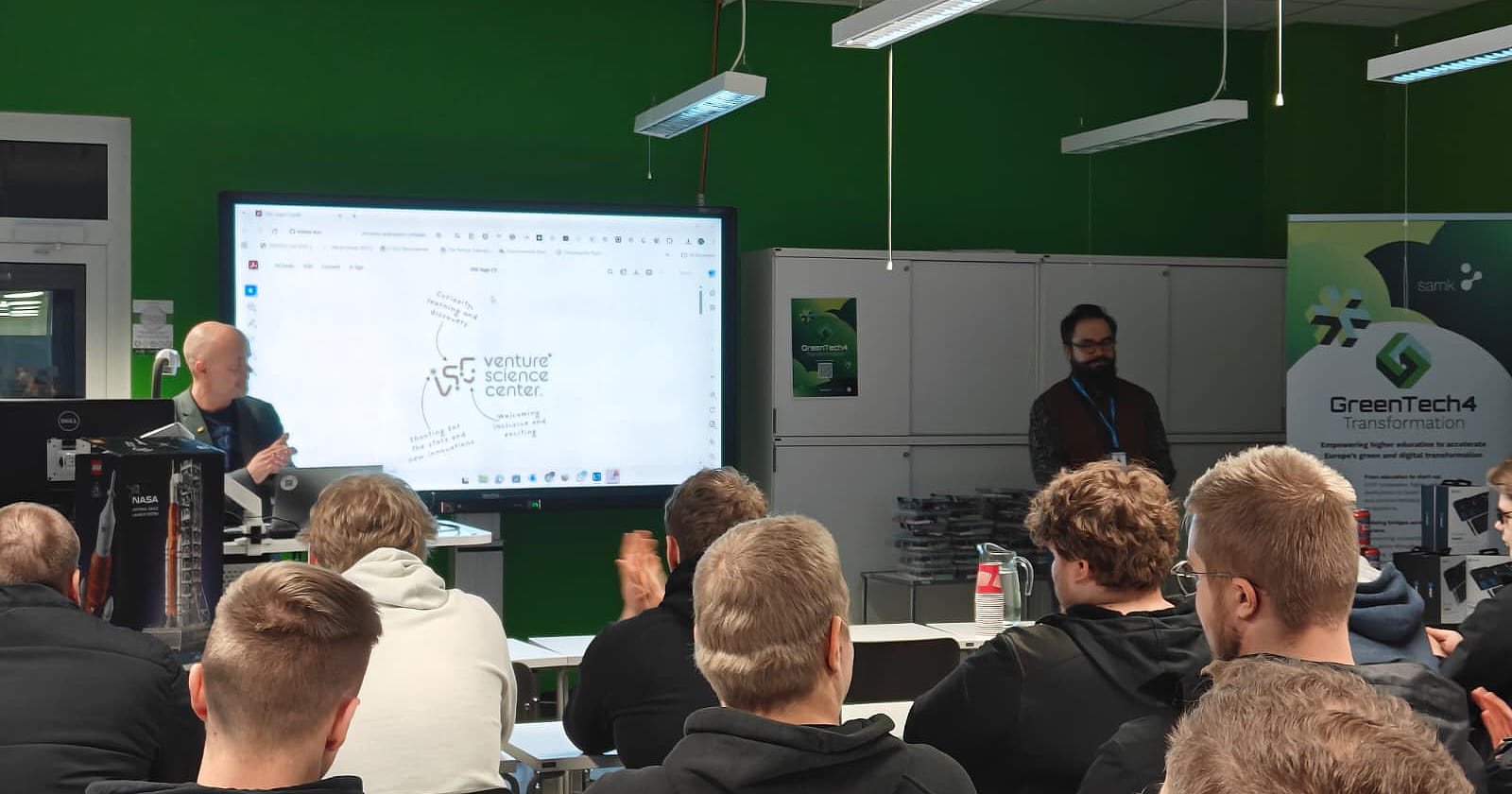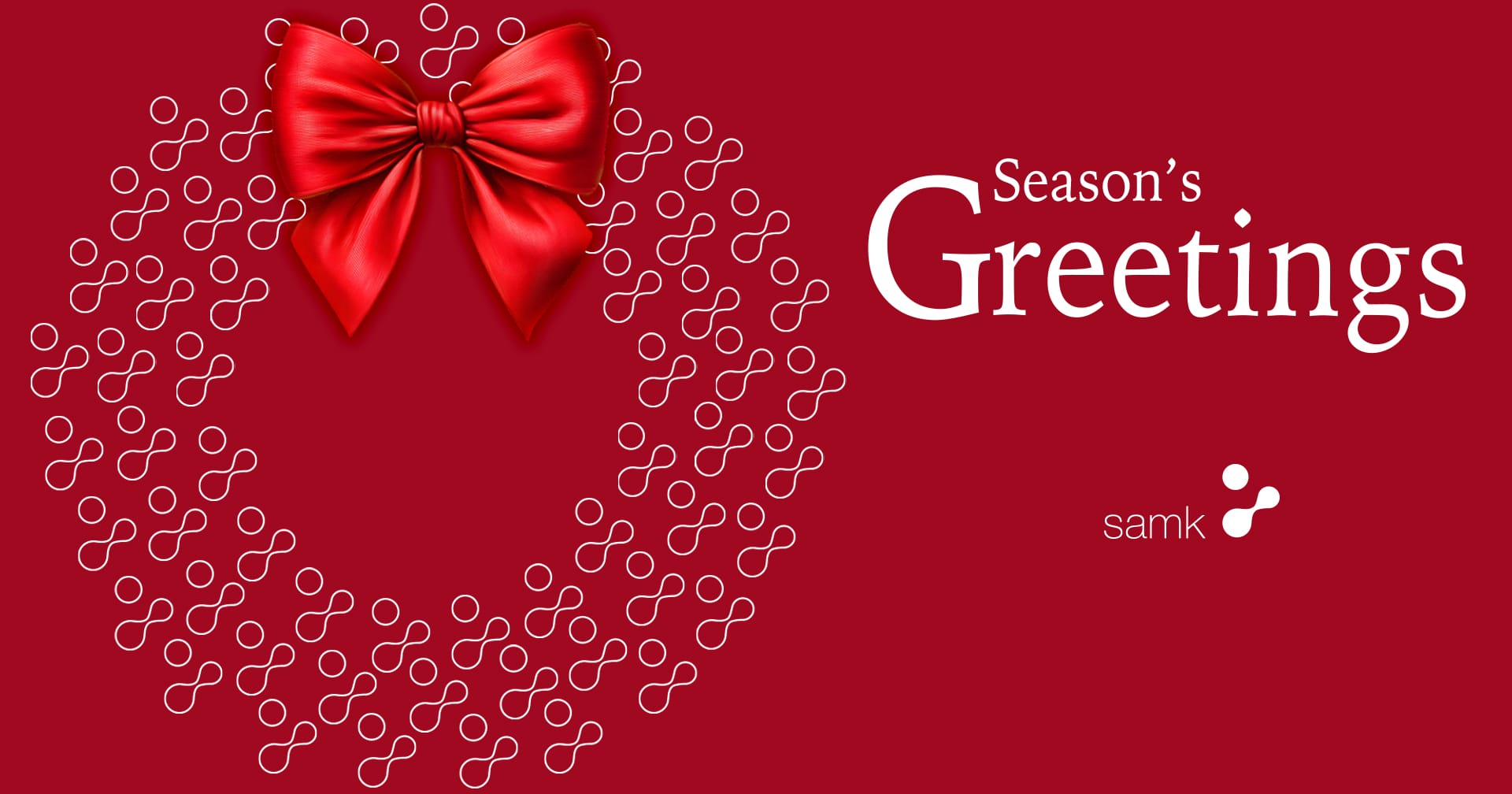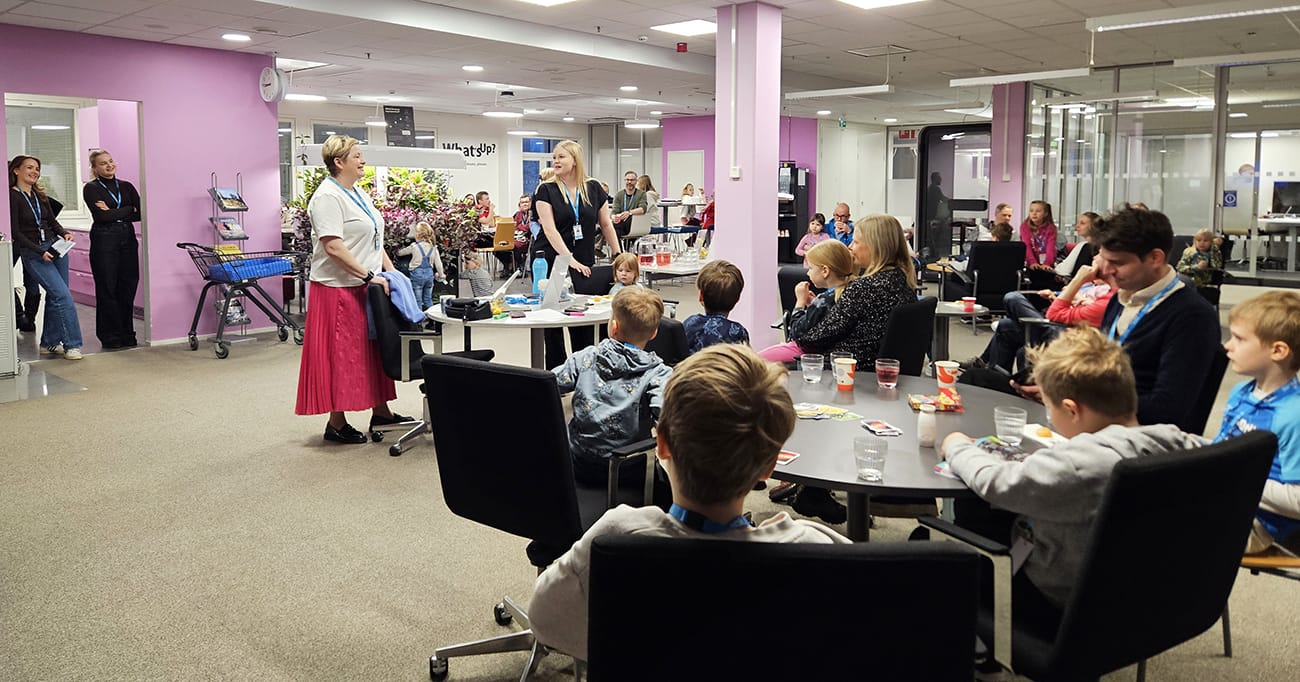Maija Kangasperko teaches international physiotherapy students in a casual and friendly environment
Senior Lecturer Maija Kangasperko teaches international physiotherapy students at SAMK together with her team. Her work includes teaching professional subjects and thesis supervision. Kangasperko has extensive international networks, and according to her, they are the university's most important resource.
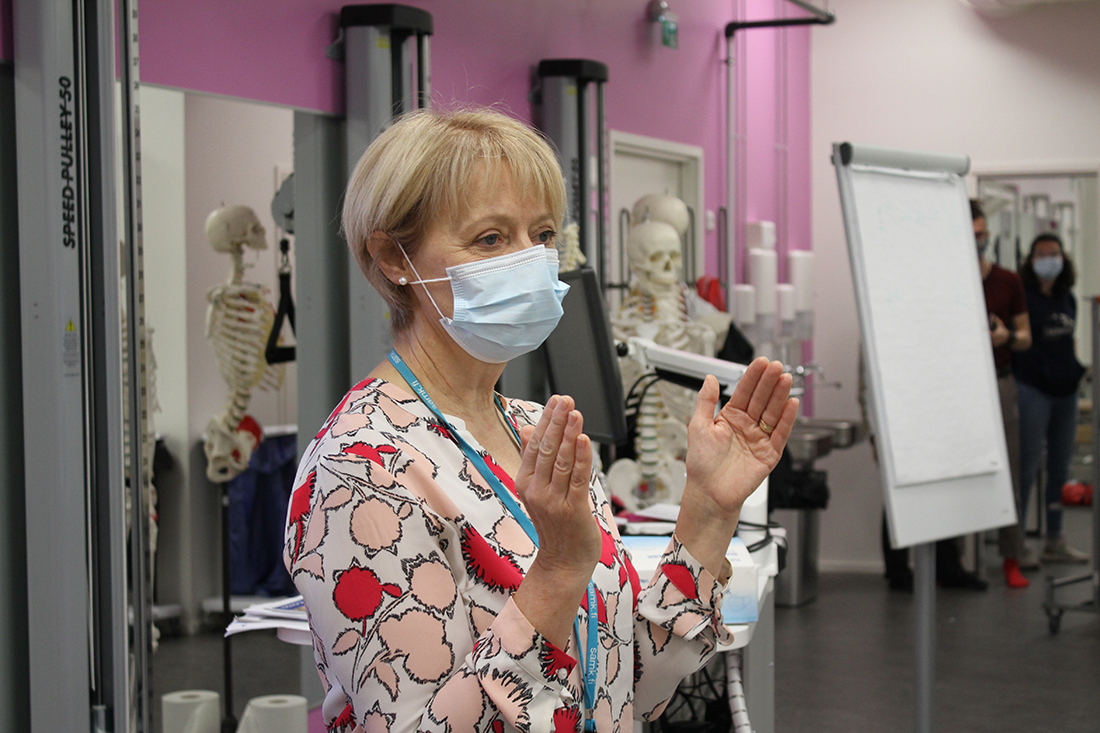
– Feeling valued and appreciated is important for coping at work. It is also important to be able to work according to your own ethical values, says Maija Kangasperko.
It’s 8:30 in the morning, and students begin entering the classroom. There are no traditional tables and chairs in the classroom; instead, the students sit at a treatment table.
The atmosphere in the international physiotherapy lecture is cheerful, and Senior Lecturer Maija Kangasperko answers the students’ questions with a twinkle in her eye. There seems to be a low hierarchy between the teacher and the students, but at the same time, the students seem to have great respect for their teacher.
When the teaching begins, the students listen carefully. From time to time, someone wants to clarify whether they have understood the subject matter correctly. Teaching combines theoretical and practical elements. The body of another student is an important learning tool for physiotherapy students, so contact teaching and interaction are an important part of teaching.
Kangasperko is open and friendly towards the students. The atmosphere in the classroom is down-to-earth and laid-back, but there are rules as well.
– I want to treat the students as my equals. For example, swearing or tardiness is not OK – and the same rule applies to me. If a student breaks the rules, I always come up with a punishment that benefits everyone. For example, I might tell them to bring biscuits for everyone the next time, says Kangasperko.
Having a close-knit team is important
The facilities used by the students of the Faculty of Health and Welfare at SAMK are diverse. For example, there is a simulation centre where students can practice real-life situations safely. In addition, learning is supported by various traditional classrooms and facilities that are well equipped for studying physiotherapy.
– The new campus is great. The staff facilities, such as the break room and open-plan office, are very functional, says Kangasperko.
Our team’s work culture is particularly good.
Kangasperko also praises the campus’ other services, such as SAMK’s library services and IT support services. On the other hand, the ever-increasing number of students creates some challenges in terms of space.
Although SAMK is a large educational institution, Kangasperko thinks that things work well. According to Kangasperko, her team provides great support in day-to-day tasks, and help is always given to those who need it. Meaningful work and friendly coworkers are key to coping at work.
– There are certainly different work cultures within SAMK’s different faculties, but in our team it’s particularly good. Over the years, we have had to adapt to all kinds of changes, and in those cases the support of the work community has been very important.
International cooperation is key to continuity
Over the years, students representing more than 40 nationalities have participated in SAMK’s English-language Degree Programme in Physiotherapy. The students are motivated and committed to their studies, as those coming from outside the EU and EEA must pay tuition fees, and even for those who come from closer locations, studying in a new country is a big decision.
Internationality is a natural part of Kangasperko’s everyday life. She is a member of the Board of the European Network of Physiotherapy in Higher Education (ENPHE), and before becoming a board member, she also served as the network’s national coordinator. The curricula are based on international cooperation, which is of great importance in physiotherapy training.
– I have learned a lot during my career thanks to international relations. Although we in Finland have a lot to give to the world, we also have a lot to learn. We have been able to develop teaching significantly through European cooperation, says Kangasperko.
I hope that internationality will continue to be emphasised in all of SAMK’s activities in the future.
According to Kangasperko, it is important to note that although the Degree Programme in Physiotherapy at SAMK is fairly small, it plays a large and significant role in the European world of education. Internationality is the lifeline of Kangasperko’s work.
– Without European cooperation, I do not see any opportunity to continue this training programme. I hope that internationality will continue to be emphasised in all of SAMK’s activities in the future, says Kangasperko.
Physiotherapy
The choices made by a physiotherapist should always be based on researched information and treatment methods should always be justifiable. Maija Kangasperko constantly challenges her students to think about things from new perspectives.
Maija Kangasperko and a physiotherapy student are in a practical training situation in the picture.
